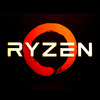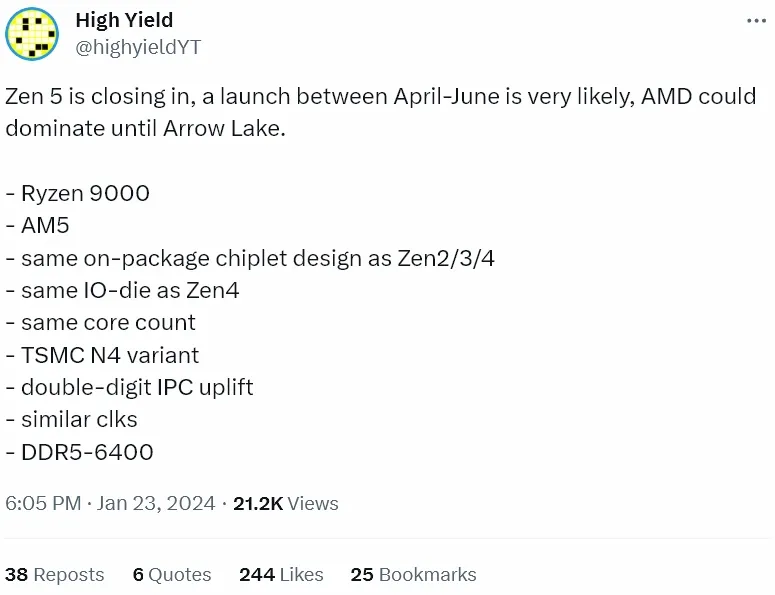Analyst and tech YouTuber High Yield has provided a comprehensive breakdown of the Ryzen 9000 series, enhancing the understanding of its specifications and narrowing down its anticipated release period to between April and June 2024. This places the Ryzen 9000 in a competitive position against Intel's forthcoming Core Ultra 200 series, challenging the previously speculated release timeline.
Key specifications of the Ryzen 9000 series include:
- Architecture: Utilizing Zen 5 CCDs, known as "Eldora," with processor cores branded as "Nirvana."
- Core Count: Offering a range from 6 to 16 Zen 5 cores.
- Integrated GPU: Equipped with either RDNA 2 or a yet to be confirmed RDNA 3.5 variant.
- Power Efficiency: The Thermal Design Power (TDP) ranges from 65 to 170 watts, ensuring a balance between performance and energy consumption.
- Performance: Clock frequencies are expected to be on par with the Ryzen 7000 series, with significant improvements in Instructions per Cycle (IPC) by over 10%.
- Cache Memory: Incorporating up to 64 MiB of L3 cache and 16 MiB of L2 cache.
- Manufacturing Process: The CPUs are fabricated using TSMC's 4 nanometer ("N4") process technology.
- Memory Compatibility: Supports DDR5 memory with speeds up to 6,400 MT/s, adhering to JEDEC standards.
Notably, the Ryzen 9000 series will continue the use of an "on-package chiplet design," similar to its predecessors, which allows for a scalable core count while enhancing performance metrics such as IPC. The series is also anticipated to support DDR5-6400 RAM, in line with the internal memory controller specifications.
AMD's roadmap may include the introduction of the Ryzen 9000X3D variant, featuring the Zen 5 architecture with an added 3D V cache, targeting enhanced gaming performance. Although confirmation is pending, this move could strengthen AMD's position against Intel. Potential future developments within the Zen 5 architecture lifecycle include a transition to more advanced manufacturing processes such as N3, N3E, or N3P, starting with the N4 process. Both TSMC and Samsung are being considered for the production of future Ryzen CPUs.
Regarding the integrated graphics processing unit (iGPU), it is suggested that the Ryzen 9000 desktop processors might continue with the RDNA 2 architecture without transitioning to RDNA 3.5. This decision is unlikely to significantly impact desktop processor performance and will maintain the provision of 28 PCIe 5th generation lanes. Further details are anticipated as the series nears its launch window.


